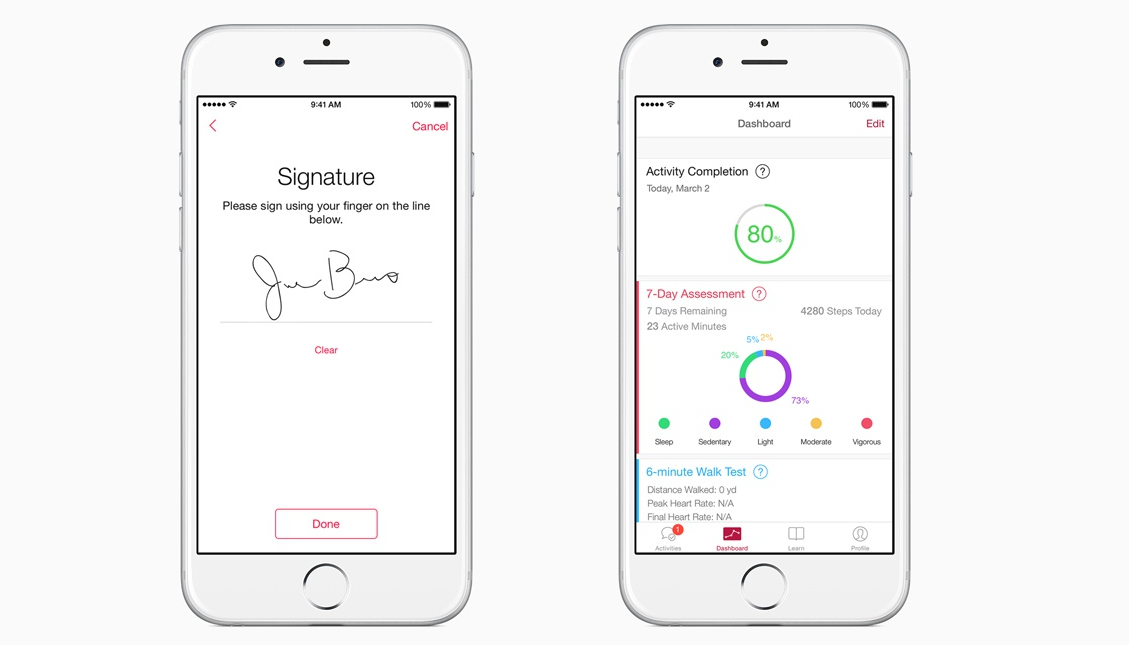Your guide to tech-driven changes in the media landscape by IPG Media Lab. A fast read for you and a forward for your clients and team.
- Apple gives the go ahead to for-profit use of ResearchKit
- Increase study population sizes by multiple orders of magnitude
- Create an iOS app that taps into iPhone and Apple Watch sensors like step counts, calorie use, and heart rates to get started
What Happened
Apple’s ResearchKit is a new open-source software framework that helps the medical community gather research data from iPhone users. Although it was initially intended for, and has been widely used in universities and other non-profit medical institutions, now two pharmaceutical companies – GlaxoSmithKline and Purdue Pharma – are starting to integrate ResearchKit in a for-profit endeavor, according to Buzzfeed.
What This Means For Pharma Brands
In order to use ResearchKit, the first step is to develop an iOS app that taps into the biometric data that will help you understand people’s lives and drug efficacy. Surveying users with questions at least daily is encouraged. The data available continuously include daily step counts, calorie use, and heart rates. Future hardware generations are likely to add to these. The requirements to tap into the data are:
- oversight by an independent ethics review board,
- explicit disclosure of the data being gathered, and
- getting a participant signature of informed consent.
Market Impact
Since Apple unveiled ResearchKit back in March, medical researchers have been using the tools to create apps to aid studies on treating various common diseases such as diabetes and asthma. A Stanford University cardiovascular study, one of the first uses of the program, had more than 11,000 participants sign up in less than 24 hours, a population size that the director of the study said would normally take a year and coordination across 50 facilities around the country.
As far as opening the platform to for-profit ventures, Jeff Williams, Apple’s senior vice president of operations, told Buzzfeed, “We’re open to working with anybody that is going to make an impact on people’s health. So we’ve made ResearchKit open-source so Apple won’t even control who uses it. We will control what we put on our App Store, but we won’t control who uses it.” This opportunity doesn’t replace anything comparable. It opens a new world of possibility for the types of information and health data that can be learned with the sensors that hundreds of millions of people around the world carry with them in the waking lives. Its scale and usefulness will only expand as more and more sensors are added to Apple’s ecosystem.
For More Information
Please contact Engagement Director Samantha Holland ([email protected]) at the IPG Media Lab if you would like more detail or to schedule a visit to the Lab.
For previous editions of Fast Forward, please visit ipglab.com. Please reply with any constructive criticism or feedback. We want these to be as useful as possible for you and your clients, and your feedback will help us immensely.
Header image courtesy of Apple’s ResearchKit Page

